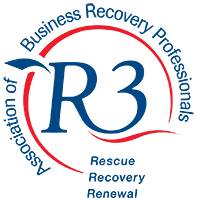Can I pay off my IVA early?
Your financial circumstances might change during the course of your IVA and you might find yourself in the position where you could potentially increase the monthly payments towards your debts, or even pay off your remaining debts to all your creditors at once.
In this guide we’ll explore the issue of paying off an IVA early, including whether it’s possible, if it’s a good idea, and how you might go about paying off your IVA early if you found yourself with enough money to do so.
Can I finish my IVA early?
In a word, yes. There is no restriction on the minimum length of an Individual Voluntary Arrangement (IVA). While most people in an IVA take between five and six years to repay lenders through their agreement, debt solutions don’t necessarily have to take that long.
The length of the IVA will be dependent on your personal circumstances and the size of your monthly repayments. These are worked out by your Insolvency Practitioner, a debt professional licensed by the Insolvency Practitioners Association, based on what you can afford at the time.
If your circumstances change, the term of your IVA might change, and so might the length of the agreement. An IVA can be completed early so long as you are able to repay your total debt, or you can come with a ‘full and final settlement’ offer which your creditors accept.
What is a full and final settlement?
A full and final settlement is a lump sum of money that you can offer your creditors so that it can be put towards your debts. If your creditors accept your proposal, you can end your IVA early.
It’s up to you to decide how much money to offer your creditors. How much that is depends on various factors, including who your creditors are, how big the lump sum is, and your chances of being able to pay off the full amount over time.
You shouldn’t offer to pay the full amount in your settlement – if your lump sum is large enough, your creditors are likely to agree to a debt write off for the remaining money you owe.
That said, you should offer as close to your total debt as you can afford. By agreeing to a settlement offer, your creditors are accepting a loss on your debts- the closer the offer is to the total amount you owe, the more likely each creditor will be to accept your offer.
What happens once I make an offer to settle my IVA early?
Approach your Insolvency Practitioner
Any decision to pay off your IVA early will need to go through your Insolvency Practitioner. They will consider whether to move ahead with the early payment based on whether they think your creditors will agree to it.
Variation meeting
If your IP decides you have a realistic chance of your proposal being accepted, they will set up what’s known as a variation meeting. This gives creditors the chance to review your proposal. If 75% of your creditors agree to a payment plan, it will be agreed by other creditors.
You’ll need to have a strong reason for wanting to clear your IVA early, and you need to show that you’ll avoid financial trouble by paying it off early. If you borrow money to pay it off, you’ll be back to square one if you can’t afford the new debt, so make sure you have a realistic plan with the finances in place.
Should I remortgage my home to pay off an IVA early?
If you’re looking to pay off an IVA early, you need to make a reasonable offer to your creditors to persuade them to accept your proposal. That’s why some homeowners use remortgaging as a way to raise a lump sum.
Remortgaging is a way of releasing equity in your home and using that money for another purpose. In the case of an early IVA settlement, you would use the money raised to offer your creditors a lump sum payment that covers a portion of the total debt they’re entitled to. In exchange, they’ll agree to end the IVA early.
Remortgaging isn’t always the best way to reach an early settlement, however, because it can be difficult to remortgage your home during an IVA.
Most people in an IVA who hold significant equity in their home are asked to look into remortgaging anyway, because it would allow them to avoid having to spend a sixth year in the arrangement. You would need to have a lot of equity in your home to end your IVA before year 5 – that’s why it’s important to discuss with your IP first before agreeing to remortgage.
Is it a good idea to settle my IVA early?
There are many reasons why it might be a good idea for you to settle your IVA early. You get to enjoy the freedom of not being constrained by the terms of the IVA. You can start rebuilding your credit score more quickly.
Even if your proposal for paying your IVA off early is rejected, it is possible to continue your IVA payments as previously agreed, meaning you won’t be any worse off than before.
All that said, you should always seek debt advice and talk to your Insolvency Practitioner before making any serious change to your IVA agreement, as they’ll be able to give you a better idea of how the proposed changes will be received by your creditors.
If I pay my IVA off early, will it impact my credit score in the same way?
Unfortunately, settling your IVA early won’t prevent the arrangement from affecting your credit score. A settled IVA will still be listed on your credit report for at least six years from the date it was approved.
During that time it’s unlikely you will still be able to obtain large amounts of credit, such as a mortgage or certain credit cards, straight away. The good news is the earlier you end your IVA, the quicker you’ll be able to begin repairing your credit score and getting yourself back on track.


